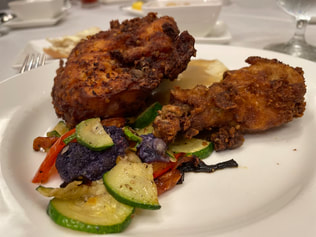
This group was really talking about their plans for the new school year, and one in particular was lamenting the approach that her administration took in observations. It really sounded like an adversarial relationship between teachers and administrators, one in which everybody had to be on their toes and looking over their shoulders for the next shoe to drop.
I related that to a time during my teaching career when I felt the same way. Even superintendents, curriculum advisors, and principals from other schools in the district would drop in unannounced to observe in classrooms. Not only this, but they would "quiz" random students about what they were learning and why. Not ever knowing what they were looking for, I didn't like trying to play their game soon decided to turn to the offense.
I turned the tables. Instead of waiting for the bosses to attack my students, I sicced the students on the bosses. No longer would they wait to be asked what are you learning? or, why are you learning this? From that point on, they would be the first to speak. We practiced and practiced for the inevitable, and by the time an assistant superintendent came into the classroom, they were ready. As she approached a table, students stood to greet her. They shook her hand and with established eye contact, they asked her to have a seat. They asked, "Would you like to see what we're working on?" they asked. The AS was shocked beyond belief. Before she left the school building, she spoke to the principal about what she had just witnessed in Room 404.
Not only was this a good offensive strategy for alleviating the stress of unwanted and overbearing observations, but it was what was best for the students. The skills they learned in this project are valuable skills that they could use in regular life. These were grown-up skills that emphasized conversation and professional talents.
The younger teachers at CWTI appeared to love the idea of going on offense, and they looked forward to using it in their own classrooms in the fall. It was an unexpected moment when we could relate to each other outside of the history of the area. I loved that they were so receptive to my suggestions.







































